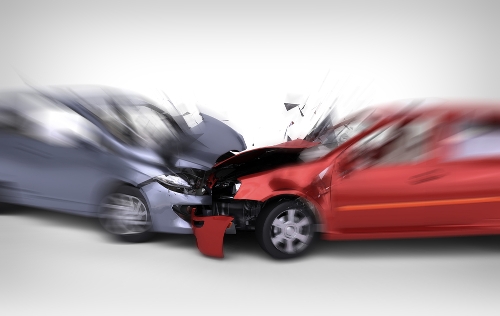Why You’re Losing Weight After Starting SCD and GAPS

Tires slipping on the icy road. Tap the brakes… heart races.
Look up see a tree and a field. Hoping to miss the tree…
BAMMM! A whole field there and I hit the only tree for a mile.
This is a common story told by car crash survivors and it highlights a universal law.
The law is that we get more of what we focus on. And sadly, it happens to those who don’t want to lose another pound of weight just like it does for the car crash victim hoping to avoid the tree.
Weight loss is a common fear that causes some to avoid starting SCD, GAPS, or Paleo in an effort to NOT lose another pound. Many do something worse: they give up just a few short weeks after starting…
This post will address the issue of lowering pounds on a scale, but it will also serve to show just how insane it is to use a scale on a regular basis. It’s best to throw your scale in the dumpster and use a more advanced form of body size measurement.
3 Causes of the Initial Weight Loss
Changes in weight come from four main factors: muscle mass, fat mass, water weight, and food/drink in transit. Some of these factors can fluctuate wildly day-to-day. For instance, it’s not uncommon for basketball players to lose 5-8 pounds of water during a 2-hour basketball game.
But when every pound seems like the end of the world, it’s important to understand what changes a lower carbohydrate diet like SCD will have on your body. The three major reasons why people lost weight are:
1. Lower Glycogen stores
2. Lower Salt intake
3. Lower Calorie intake
Low carbohydrate weight loss diets like the Atkins diet actually leverage these very ideas to market a fast reduction of weight.
So yes, it’s very common to lose a few pounds when you start. It’s actually something I expect everyone to tell me. It’s also what is called temporary or transient weight loss.
Not actual fat or muscle mass loss.
Most of it is Water Weight
I understand that when the “underweight comments” are coming from every angle, the fight for every pound can make or break your day. I hope that by the end of this article you’ll relax and stop tying your weight to your confidence. As it’s one of the worst confidence mistakes many make.
Lower Glycogen stores means less water weight.
Part of the reason that a basketball player loses so much weight during a game is sweating, but even more is likely due to loss of Glycogen. Glycogen is a stored carbohydrate. Our body keeps glycogen on hand in the liver and in the muscles.
The interesting thing is that, for every gram of glycogen stored in the body, the body also keeps 3-4 grams of water. So let’s look at some math…
Let’s say I’m eating a grain-based higher carbohydrate diet and have 600g of stored glycogen. But then I go on SCD because I’m sick of all the IBS problems. After a week, my glycogen stores are down to 200g due to eating less and one workout. So, I’ve burned 400g of glycogen and also gotten rid of 900-1200g of water.
It might not sound like much weight but it can be.
But look at this study. It shows females losing on average of 4.3kg (9.4lbs) of weight in 4 days! From the study:
“Glycogen losses or gains are reported to be associated with an additional three to four parts water, so that as much as 5kg (11lbs) weight change might not be associated with any fat loss.”
It’s worth noting that the women in the study had a starting weight ranging from 144.6lbs to 238.5lbs. So, if you weigh less than that, it’s possible you have less to lose due to body size. However, even the lightest female lost 6.8lbs in 4 days which was higher than heavier participants… so it’s very individualized.
Less Salt = Less Water
One of the biggest differences between a western diet and a real food diet is the lack of additional sodium. Even gluten-free boxed junk food contains a bunch of salt. So, when someone switches to full SCD or a Paleo diet, their salt intake usually drops very dramatically.
And when this happens we store even less water. It’s pretty common knowledge that salt intake increases water retention. But most don’t think about just how much salt they eat on SCD.
For instance, unless you are regularly heavily salting at each meal, you might not be getting enough salt from the food alone. And not enough salt is a big problem. Salt, like many other foods, has gotten a bad rap. But the truth is: too little sodium is likely as bad as way too much (Read this on salt intake). In summary, this may only affect your weight by 1-2 pounds.
The other factor at play is total calories eaten.
Some Accidentally Starve Themselves
Low carbohydrate diets are known to cause easy weight loss. One of the biggest reasons is thought to be the types of foods that are eaten. Low Carbohydrate foods tend to be high in protein and fat, which are more satiating than carbohydrates.
This can make the switch from processed food to real foods an interesting struggle to retrain your stomach how much to eat and how often. Sometimes, we have to force ourselves to eat.
But what also isn’t mentioned. is that if you eat smaller portions of food that are more nutrient dense it creates less physical matter in your digestive tract. And this matters for your total overall weight.
Less physical matter eaten results in less physical matter in transit and less weight on the scale.
What to Do About the Lost Weight
Some of your weight loss is water and you need to expect this and understand it. Try not to freak out about 2-4 pounds here or there on the scale.
Monitor your calories using a program like fitday.com. If you’re underweight, eat 500-2000 more calories a day (depending on your needs). Start by eating more calorie-dense foods, and if necessary, start using a weight gainer shake.
And remember to dump your scale. Use a tape measure, or pictures. Scales can be prison for many. Liberate yourself.
-Steve
Did You Like this Article?
Subscribe to our newsletter to receive email notifications, some ways to find relief, and next steps.
